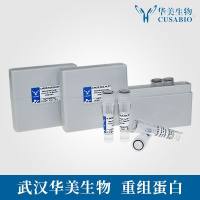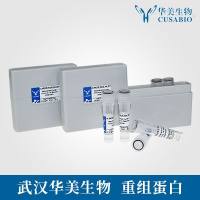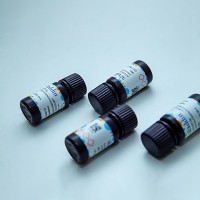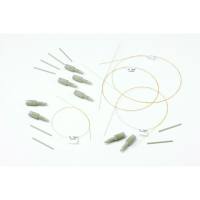Alternative splicing (AS) significantly contributes to transcriptome and proteome complexity. Transcriptome-wide studies concluded that approximately 22% of Arabidopsis and rice genes are subject to AS. Despite increasing recognition of AS in plants, little is known about the function of individual products of AS. In our studies of the Arabidopsis RPS4 resistance gene, which requires AS transcripts for function, the need to quantify AS transcripts became apparent. Because RPS4 expression levels are very low and the pattern of RPS4 splicing is complex, existing mRNA quantification methods were not adequate. We therefore developed a new method based on reverse transcription (RT) PCR amplification of all transcript variants with a common set of primers and separation of the PCR products by size via capillary electrophoresis. Products were quantified by analysis of several PCR cycles per sample using the signal quantification procedures developed for microsatellite genotyping on capillary sequencing machines. With this method, we were able to measure differential regulation of individual RPS4 alternative transcripts specifically during effector-triggered immunity. This method is especially suitable for quantification of alternative transcripts of low-expressed genes exhibiting complex splicing patterns.






